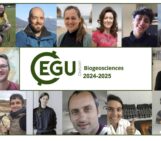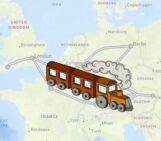
A guide for early career researchers exploring opportunities beyond academia
Pursuing a PhD often starts with the assumption that your next step will be a postdoc, followed by a tenure-track position. But, for a number of reasons, many early career researchers are starting to look beyond academia. Industry careers represent an appealing alternative as they offer stimulating work, competitive salaries, and the chance to apply your skills to real-world challenges.
The good news: you don’t have to wait until after your graduation to get started. Working in industry during your PhD can provide you with valuable experience, broaden your professional network, and open up exciting new career opportunities.
Whether it’s through internships, part-time work, or collaborative projects, integrating industry exposure into your PhD can be a game-changer.
The benefits of industry experience
Diversifying your experience during your PhD gives you greater clarity when planning your career. It can help you decide whether industry is right for you, and which sectors (e.g., geotechnical engineering, environmental consulting, R&D, or renewable energy, just to name a few) align with your interests – before you reach a career crossroads.
Having industry experience on your CV makes you more employable. It signals that you understand both academic and business environments. This is a major asset in a competitive job market, and, whether you’re planning on continuing in industry or staying in academia, it will broaden your perspective.
Working in different sectors also expands your professional circle beyond university departments, which can be invaluable when job hunting after your PhD.
And, last but not least, let’s not overlook the financial benefits. Industry roles often offer better pay than academic assistantships or scholarships and can ease financial stress during your studies.
Getting a foot in the door
Finding a role in industry might seem daunting at first, but opportunities are more accessible than you might think.
A good way to get started is to look for internships or short-term placements through university career services or industry partnerships. Reach out to contacts – alumni, collaborators, or even LinkedIn connections – who’ve transitioned from academia to industry. Another option is to explore industry-funded research collaborations. These are often less formal and can be a nice way to combine both academic and industry-related experience. Lastly, attend conferences and career fairs that include industry participation.
Transferable skills you already have
It is common to think that you’re so highly specialized, your skills won’t fit into an industry context. But in reality, the skills you’re building every day are highly sought after. Learning to frame these skills in a way that makes sense to your employer is often the only missing piece. And in times of AI, these soft skills or ‘transferable skills’ are more important than ever. Here are a few examples:
Problem-solving and critical thinking: companies value your capacity to break down complex problems and find evidence-based solutions.
Project management: Running experiments, collecting and analyzing data, report writing, meeting deadlines and coordinating with supervisors mimic the workflow of many industry roles.
Communication skills: If you’ve ever written a paper, given a presentation, or explained your research to a non-specialist, you’ve learned to effectively express and deliver complex ideas.
Being a quick learner: During your research you’ve become an expert at immersing yourself into new, intricate topics and collecting the essential information – a competitive advantage.
Differences in work culture
One of the biggest shifts when moving into industry, even temporarily, is the change in work culture.
Industry moves faster than academia, projects are usually deadline-driven with clear deliverables and a focus on efficiency. While academia allows for deeper exploration, industry rewards results and applications.
In academia, working independently is key but it can also feel isolating. In contrast, industry roles usually involve working in cross-functional teams. Therefore, being a team player, as well as clear, frequent communication and collaboration, are crucial and allow for more frequent exchange with colleagues.
While academic success is mainly measured through the number of publications and citations, industry success is about outcomes such as delivering a product, service, or analysis that meets client or market needs.
Finally, many industry roles offer a more structured workday, with less expectation to take work home. Although this may vary, it can make it easier to set boundaries and lead to a better work-life balance, which is especially valuable if you’re juggling other life commitments.
Making it work with your PhD
Balancing your PhD with industry work requires clear communication, as well as time and energy management. Talk to your supervisor early if you’re considering industry involvement. They may be supportive and even help facilitate opportunities and collaborations. Set boundaries on time and workload. A part-time role, short internship, or consultancy project is often more manageable than a full-time commitment.
The most effective way to balance both is to look for alignment. Ideally, your industry work will complement your PhD topic, help you collect data, or build relevant skills, so you’re not pulled into two different directions.
Final thoughts
Working in industry during your PhD doesn’t have to mean you’re “leaving academia”. It is a way to grow, diversify your skills, and open new doors. It is a bridge between curiosity-driven research and purpose-driven impact.
Whether you’re passionate about solving environmental problems, developing new technologies, or implementing policy, industry experience can offer a rewarding path forward.
Don’t wait for your graduation to start exploring – the sooner you step outside the ivory tower, the more prepared and empowered you’ll be for whatever comes next.
Written by Nicola Krake, edited by Saule Akhmetkaliyeva





